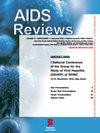补充维生素D、硒或锌对HIV的影响:系统综述。
IF 1.9
4区 医学
Q4 IMMUNOLOGY
引用次数: 2
摘要
我们进行了一项系统综述,以检验随机对照试验的证据,这些试验研究了补充维生素D、硒或锌对人类免疫缺陷病毒(HIV)的影响。使用Ovid Medline、Embase、CINHAL、Cochrane中心对照试验登记册、系统评价数据库、Psych Info和PubMed进行电子文献检索。根据随机化过程的充分性、分配的隐蔽性、干预和结果的盲目性以及随访的完整性,评估符合条件的文章的方法学质量。本综述共包括24项单一补充剂试验(维生素D、硒和锌),涉及5948名参与者。来自七项维生素D试验的证据表明,补充维生素D对感染艾滋病毒的成人或儿童/青少年的艾滋病毒疾病进展没有损害或有益的影响。六项硒研究发现,每天为感染艾滋病毒的成年人补充硒可以增加CD4细胞计数,并降低感染艾滋病毒的成人因感染艾滋病毒相关疾病和机会性感染而腹泻发病率和住院率。来自11项锌试验的证据表明,补充锌对腹泻发病率和免疫功能有潜在的有益作用。然而,需要在更大、更多样化的HIV患者群体中进行进一步研究,以充分调查这些营养素对HIV疾病临床相关结果的影响、最佳剂量以及补充维生素D、硒或锌的成本效益或成本效益。本文章由计算机程序翻译,如有差异,请以英文原文为准。
Effect of Vitamin D, Selenium, or Zinc Supplementation in HIV: A Systematic Review.
We conducted a systematic review to examine evidence from randomized controlled trials studying the effect of Vitamin D, selenium, or zinc supplementation in human immunodeficiency virus (HIV). An electronic literature search was carried out using Ovid Medline, Embase, CINHAL, Cochrane Center Register of Controlled Trials, Database of Systematic Reviews, Psych Info and PubMed. Eligible articles were assessed for methodological quality on the basis of the adequacy of the randomization process, concealment of allocation, blinding of intervention and outcome, and completeness of follow-up. A total of 24 single supplement trials (Vitamin D, selenium, and zinc) involving 5948 participants were included for this review. Evidence from seven Vitamin D trials showed no damaging or beneficial effect of Vitamin D supplementation on HIV disease progression in HIV-infected adults or children/adolescents. Six of the selenium studies found that providing daily selenium supplementation to HIV-infected adults' increased CD4 cell counts and reduce the risk of diarrhea morbidity and hospital admission rate for HIV-related conditions and opportunistic infection in HIV-infected adults. Evidence from eleven zinc trials showed some evidence of a potential beneficial effect of zinc supplementation on diarrhea morbidity and immune function. However, further research in larger and more diverse populations of HIV patients is required to fully investigate the effect of these nutrients on clinically relevant outcomes in HIV disease, the optimal dose, and the cost-benefit or cost-effectiveness of Vitamin D, selenium, or zinc supplementation.
求助全文
通过发布文献求助,成功后即可免费获取论文全文。
去求助
来源期刊

AIDS reviews
医学-传染病学
CiteScore
3.40
自引率
4.50%
发文量
41
审稿时长
>12 weeks
期刊介绍:
AIDS Reviews publishes papers reporting original scientific, clinical, epidemiologic and social research which contribute to the overall knowledge of the field of the acquired immunodeficiency syndrome and human retrovirology. Currently, the Journal publishes review articles (usually by invitation, but spontaneous submitted articles will also be considered). Manuscripts submitted to AIDS Reviews will be accepted on the understanding that the authors have not submitted the paper to another journal or published the material elsewhere.
 求助内容:
求助内容: 应助结果提醒方式:
应助结果提醒方式:


